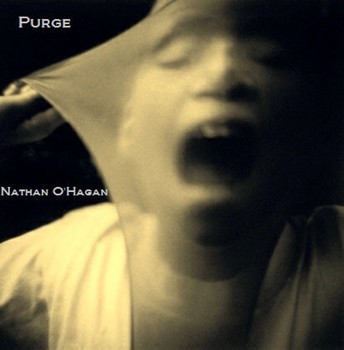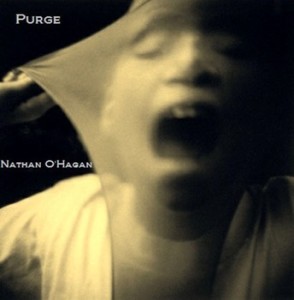In one particularly dark, damp corner of that monolith, that looming ziggurat – AMAZON.COM – you will find (if you search hard enough) a peculiar tribe of struggling authors selling their stories directly from the very margins of the publishing industry. These stories vary in quality and success; their authors vary in talent and sanity. But the movement is an exciting one. Paperless, inexpensive, democratised: the impact of Kindle’s ever-extending distribution options may mean that hard-working amateurs finally have a chance to achieve success on their own terms. This is vanity publishing, but without the vanity. Nathan O’Hagan’s new short story collection Purge stands precisely on this platform of potential, but does it deserve to? GIITTV explores the early outbursts of a developing writer.
Purge: from the title alone we can assume the collection will not be ‘life-affirming’. Its deadpan treatment of violent desperation, punctuated by a tone of almost inhuman detachment, will not impress Richard and Judy. Approaching the unblinking gaze of Hubert Selby Jr. (though unfortunately without the late Cubby’s spasmodic flair), O’Hagan provides near-photographic glimpses of the irrational cruelties of modern life: an obsessive paranoiac decides to live in his cupboard; two commuters reach a frantic point of interchange; a bulimic attempts to perfect his eating disorder. The motif is clear, as curtly as it sometimes appears: when the marginalised individual emerges from an alienated existence, things tend to fuck out. The way the reader feels afterwards is less straightforward. As O’Hagan repeatedly reveals to us the consequences of abandoning the vulnerable (they might actually murder us, etc.), we are left to wonder whether, ignoring our post-Christian sentimentalities, we should actually care. O’Hagan’s men-in-reaction are portrayed almost exclusively torturing themselves with unrelenting pessimism and bitterness in response to the wrongs society has dealt them. There is little evidence of stoicism, levity or sensitivity, and in that sense, most characters fall victim to a fatal lack of charisma; it is little wonder that suicide should become an irrational but predictable conclusion.
But, the partial failure of O’Hagan’s characterisation does not mean failure for the collection, or for the potential of the author. If there is one outstanding merit to the Kindle platform, it is that we are able for the first time to see the author in-development, in which sense Purge is an exciting work. To purge is to force oneself to vomit. O’Hagan’s ability to explore some of the most carefully-hidden recesses of the Self in a crisp, consistent style lends Purge a muscular quality reflecting the sturdiness of the author’s intent. It is a purging of its own: both a rejection of the social standards that uphold the phenomenon of alienation (the author’s sympathy, I would argue, is inherent), and a chucking-up of society’s half-digested contents for re-inspection. It is a purge not just in a bulimic sense, but in a medical-superstitious sense; it belongs to the tradition of blood-letting. Beyond the gore that occasionally peeks out of everyday life is something of the absurd, the disjointed, the desperate. O’Hagan delves into this unflinchingly, and resurfaces with a piece of it in his hand, openly displayed.
Purge is (in a certain sense) a perfect example of writing at-the-margins about-the-margins. It is a work of experimentation from an author still finding his voice, a fact that gives it freedom of movement whilst simultaneously placing it at the edges of the industry. Nathan O’Hagan is, for the moment, perfectly situated; his work needs honing before it is exposed to the glare of popularity. But there is potential here, and the televisual lining of the author’s style should not be ignored, especially not by the author himself. Whilst O’Hagan and others remain, for the moment, scattered across the peripheries of the industry, it will be hard work and commitment that brings them into the core. The Amazon phase puts authors to the test. They will require a strong stomach.
http://www.amazon.co.uk/gp/reader/B00DC2O50E/ref=sib_dp_kd#reader-link





